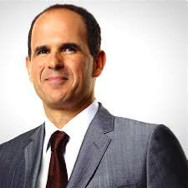Since Reality TV has been ‘a thing’ for the past 20 years or so, I have dismissed 99% of it as inane nonsense (The Amazing Race being an exception.) Well, a show has finally come along that has forced me to re-evaluate my position. Thanks to Marcus Lemonis and CNBC’s The Profit, I’m now hooked on an extraordinary and educational reality show. Over the past three seasons, serial entrepreneur Marcus Lemonis has invested $35M of his own money into a variety of struggling businesses in order to take over management control and re-position companies on new profitable paths. When evaluating businesses for potential investment, Marcus is guided by three primary considerations: product, people and process.

As an M&A Advisor and business consultant, I help entrepreneurs develop and execute strategies to maximize value in selling their companies. Binge-watching The Profit in action has crystalized the following 5 key lessons for me as I help entrepreneurs position their companies for sale:
- Know Your Numbers – it’s critical that business owners understand exactly how they make money in their businesses. Marcus reminds business owners that understanding their financials is the roadmap to success. This is especially true when it comes time to sell a business, as buyers generally value businesses based on a multiple of cash flow. This means that each $1 dollar in profit translates to an extra $3-6 in transaction value (depending on the industry multiple) Therefore, buyers will want to understand gross margins, fixed vs. variable costs as well as potential levers they can pull to increase margin. As an advisor, I probe into these areas as well, especially because if I can get involved early enough, I can help business owners implement changes that increase the value of the business. For example, I recently helped a business owner persuade his landlord to take back some space that was no longer needed, savings $2,500/month in rent, adding $100,000 in transaction value.
- Trust the process – As soon as Marcus decides to invest in a company, he presents a vision for the long-term potential of the company. Marcus has taken small local concepts like the Simple Greek and Sweet Pete’s Candy Shop and re-positions them as viable nationwide franchisors. Often, the entrepreneurs that Marcus encounters have egos that prevent from them accepting an outside point of view. He constantly reminds his partners to ‘trust in the process’, as it’s often difficult for the owners to visualize the long-term benefits of Marcus’ recommendations. As an M&A advisor, the path to selling a business can take anywhere from 6 months to several years, depending on many factors, but most notably the financial and operating condition of the business and how reasonable both parties are in their expectations. At the onset of meeting a prospective seller, I help them visualize the next chapter of their life. What does it look and feel like to have sold your business? I can then have a foundation to educate sellers on the multi-stage M&A process and keep them focused on the bigger picture. Having a well-defined and communicated process keeps all parties focused and provides stability for when certain activities take longer than expected.
- Be Direct – One of Marcus’ key strengths is his ability to communicate clearly in everyday terms that everyone can understand. He is incredibly personable and direct, which allows him to deliver bad news as effectively as good news. He sets expectations for roles and responsibilities for all team members and holds each person accountable. When a partner isn’t meeting expectations, he respectfully addresses them in private, often changing the environment and going for a walk outside. Watching Marcus deliver ‘tough love’ gave me the additional confidence I needed to explain to a seller that the value of his business had declined by 40% due to a poor 2nd half of 2015. There’s never an easy way to deliver bad news, but Marcus does it as well as I’ve ever seen.
- Be Reasonable – When Marcus is involved in a negotiation, I’m constantly surprised by how fair he is in valuing businesses. Many of the companies that Marcus invests in are struggling, often saddled with debt, possessing minimal assets and experiencing declining sales. In all reality, Marcus is the last hope the business has of survival. Despite this leverage, Marcus offers a very generous valuation that keeps all parties sufficiently motivated, while allowing for significant upside in success. Unlike the VC’s in the Shark Tank, Marcus doesn’t try to extract every quarter point of equity as he’s playing the long game, knowing that being fair benefits all parties in the long run. Through my experience in corporate M&A working on large deals for a global entertainment and technology firm, I learned this lesson the hard way as I have seen deals become contentious when both sides would try to win every deal point, regardless of materiality. The adversarial nature of these negotiations set a precedent that led to deep mistrust between the parties. In my current deals, I keep the bigger picture in mind, driving a respectful process and working towards agreements that make sense for both sides.
- Learn from Best Practices – When Marcus lays out his vision for what he believes a company can become, he often leverages his relationships to schedule site visits to best-in-class providers to help expand the perspective of his entrepreneur partners that often have blind spots and a lack of awareness of how other companies have solved similar problems. Generally, these are established companies in the same industry that have developed efficient processes, economies of scale in production, a streamlined design process or another type of competitive advantage. Touring these companies helps business owner visualize what the business can become upon successful execution of Marcus’ recommendations and adoption of best practices. In my business, I draw inspiration from other M&A advisors, Private Equity firms and serial strategic acquirers who have mastered the art of sourcing and closing deals. As an example, I recently attended an M&A conference where I learned from a leading PE firm how to develop a valuation scorecard to clearly explain to business owners where and why they fall within in a valuation range.
We are fortunate that the footprint of Reality TV now extends to encompass the business philosophies of successful entrepreneurs like Marcus Lemonis. Each episode is packed with digestible lessons for anyone seeking to improve their business or better serve business owners. Marcus brings an ‘everyman’, common sense perspective to deal-making which has reinforced many lessons for me and I’m excited to see how see how he invests the next $35M in Season 4.
Kevin Berson is licensed Business Broker with Kinected Consulting and is based in Los Angeles, CA. He specializes in helping business owners of lower middle market companies maximize outcomes in selling their businesses. He is also the founder of Kinected, a management consulting firm that advises companies with business development, strategy and merger and acquisition diligence. Kevin can be reached at kevin@kinected.com.



